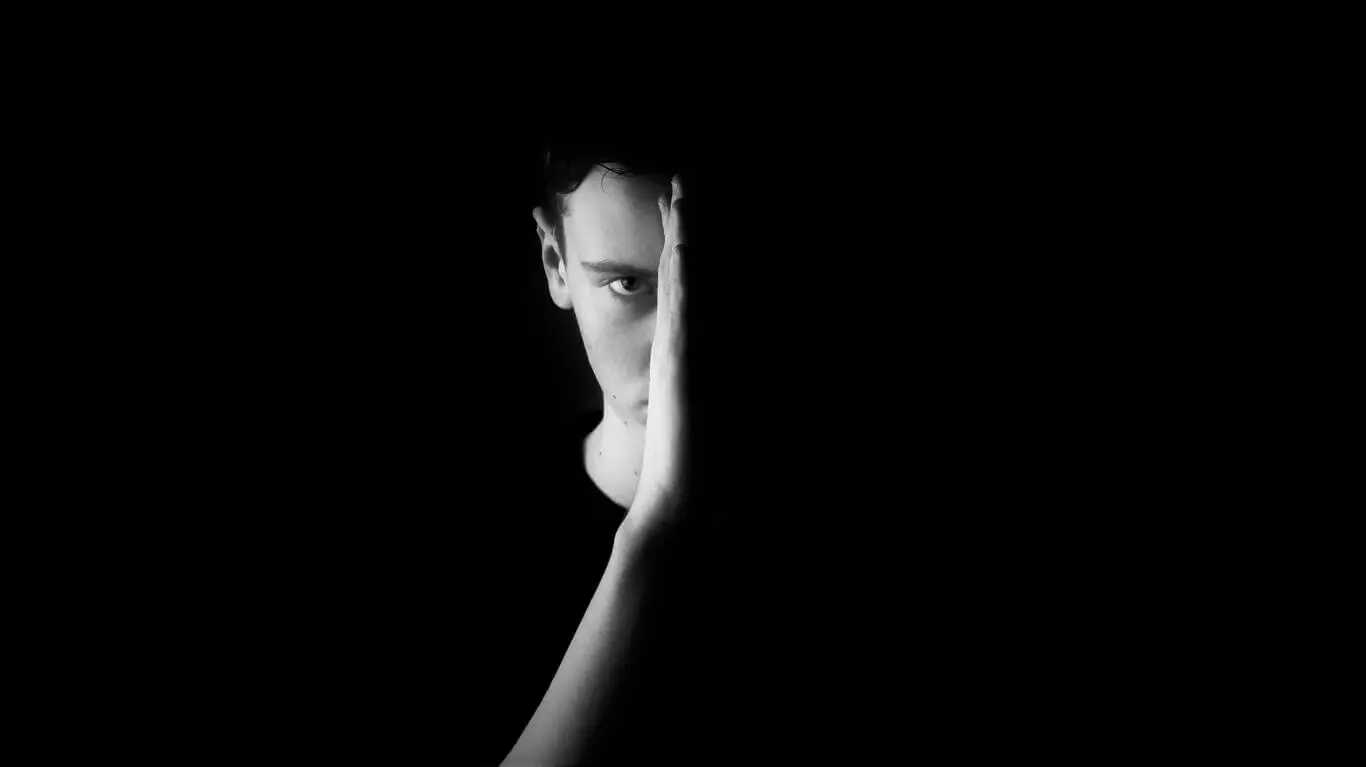Shadow Self: Embrace Your Dark Side!!

We all have aspects of ourselves that we would rather keep hidden away. From doubts and fears to guilt and shame, these so-called bad parts of ourselves make up the “shadow self.” The shadow self is a vital aspect of our personality, yet it may be difficult to accept.
After all, who wants to face their own shortcomings? However, denying the shadow self can lead to problems down the road. Suppressing these negative aspects of ourselves can lead to mental and emotional problems, such as anxiety, depression, personality disorders, and more.
It can also make us more prone to developing unhealthy coping mechanisms, such as substance abuse. Everyone carries a shadow, and embracing the shadow self can be a powerful tool for growth.
Learning to accept our flaws can help us to become more resilient and adaptable people. It can also give us a greater sense of empathy and understanding for others.
So next time you’re feeling down about your own shortcomings, remember that everyone has a shadow self. And that’s okay.
What is the Shadow Self?
The shadow self, a term coined by the renowned Swiss psychiatrist Carl Jung, refers to the part of our unconscious mind that houses our repressed emotions, primal desires, undeveloped qualities, and unacknowledged aspects.
These hidden parts of ourselves often stem from childhood experiences or societal conditioning, which can lead to a split in our psyche. Facing the shadow self is essential for achieving self-awareness, personal growth, and healing any inner trauma that might be holding us back.
The concept of the shadow self is rooted in Jung’s psychoanalytic theory, which emphasizes the importance of understanding the unconscious mind’s role in shaping our thoughts, feelings, and behaviors.
According to Jung, our psychological projection or the process of attributing our own undesirable traits to others is often an indication that we have not fully acknowledged or integrated our shadow self. By exploring our shadow self, we can develop a deeper understanding of ourselves and uncover the root causes of our emotional challenges.
Embracing Shadow Work – The Path to Healing
Labeling Emotions and Triggering Situations
To embrace your shadow side, begin by identifying the emotions and situations that trigger its emergence. Pay close attention to your feelings, reactions, and behavior in different circumstances, and look for patterns or recurring themes.
This process may involve confronting uncomfortable negative emotions or memories, but it’s crucial for developing self-awareness and understanding the hidden parts of yourself.
As you reflect on your emotions and triggers, practice self-compassion and refrain from judgment. Remember that this journey is about growth and healing, not blame or shame. By acknowledging and accepting your emotions without judgment, you’ll be better equipped to understand and integrate your shadow self.
Meditation and Journaling
Meditation, particularly mindfulness or guided visualization techniques, can be instrumental in exploring your shadow self and fostering self-awareness. By quieting your conscious mind and focusing inward, you can uncover hidden emotions, desires, and aspects of your psyche that may have been buried or ignored.
Journaling is another powerful tool for self-reflection and understanding your shadow self. Writing down your thoughts, emotions, and experiences allows you to express yourself freely and without judgment. As you journal, you may begin to notice patterns of past trauma, themes, or insights that can help you make sense of your shadow self and guide you on your path to your higher self.
Professional Therapy
Seeking professional help, such as talk therapy, can be incredibly valuable in exploring and integrating your inner shadow self.
Therapeutic approaches like psychodynamic psychotherapy, schema therapy, existential therapy, dialectical behavior therapy, cognitive behavioral therapy, cognitive analytic therapy, or dynamic interpersonal therapy can help you navigate your emotional journey and provide valuable insights.
Working with a therapist can help you confront and resolve deep-seated issues, repressed emotions, and unacknowledged aspects of your psyche. A professional can guide you through this process, offering support and understanding as you explore the depths of your inner darkness and begin the healing process.

The Art of Integration and Self-Acceptance
Facing Your Dark Side
Embracing the darker aspects of ourselves requires a willingness to observe your behavior, practice patience, and take ownership of your actions.
Recognize and accept the traits that you may have been suppressing or denying, such as being a perfectionist, people-pleaser, control freak, passive-aggressive, workaholic, or having a strong ego.
By acknowledging and accepting these traits, you can begin the process of integration and self-acceptance.
It’s also important to recognize that everyone has a shadow self, and we are all on our own unique journey of self-discovery and growth. By extending compassion and understanding to both yourself and others, you can cultivate an environment of healing and transformation.
Remember that the goal is not to eliminate your shadow self, but rather to integrate and accept it as a part of your whole being.
Developing Emotional Fluency and Establishing Boundaries
The key to true integration and self-acceptance lies in developing emotional fluency and establishing healthy boundaries. Emotional fluency refers to the ability to identify, express, and manage your emotions, even the uncomfortable ones.
By becoming more emotionally fluent, you can better understand your shadow behavior and navigate the complexities of your inner world.
Establishing healthy boundaries is also essential for integrating your shadow self and protecting your personal power. This involves setting limits on what you will and will not tolerate in your relationships, work, and personal life.
By clearly defining your boundaries, you can create a safe space for your shadow elements to coexist with your conscious self, promoting harmony and balance within your psyche.
Cultivating Self-Awareness and Self-Acceptance Through Creativity
Unleashing your creativity can be a powerful means of exploring your shadow self and enhancing conscious awareness.
Engaging in artistic pursuits that resonate with your soul can allow your negative thoughts to be expressed in a healthy and constructive manner making way for your true self. This creative exploration can take many forms, such as painting, writing, dancing, or even gardening—whatever medium speaks to you.
As you tap into your creativity, you may discover new insights about your shadow self and learn to appreciate the unique qualities it brings to your life. Embracing your creative side can also help you cultivate self-acceptance, recognizing that the shadow aspect is an integral part of who you are and that it contributes to your overall growth and development.
Unraveling the Connection Between Dreams, Archetypes, and the Shadow Self
Carl Jung believed that our dreams serve as windows into our unconscious mind, revealing aspects of our shadow self through various archetypes. By examining your dreams, you can decipher hidden messages and better understand your shadow self.
Dream Journaling and Interpretation
Maintaining a dream journal is a useful practice for gaining insights into your subconscious mind. Record your dreams as soon as you wake up, noting any recurring patterns or themes that emerge over time.
Engage in dream interpretation exercises to further explore the symbolism and meaning behind your dreams. You might also consider seeking the guidance of a professional dream analyst to help you delve deeper into your unconscious mind.
Identifying Archetypes in Your Dreams
Archetypes are universal symbols or patterns that can be found in our dreams. Recognizing these archetypes can help you better understand your shadow self and the underlying emotions or issues that need to be addressed.
Some common archetypes include the hero, the mother, the trickster, and the wise old man or woman. By identifying these archetypes in your dreams, you can gain valuable insights into your shadow self and uncover the hidden aspects of your psyche that are calling for attention and integration.
Overcoming Blame and Low Self-Esteem
Blame and low self-esteem can be significant barriers to embracing your shadow self. To overcome these obstacles, practice self-compassion, forgiveness, and self-love.
Letting Go of Blame and Guilt
Acknowledge any feelings of blame or guilt and recognize that they are part of the human experience. Give yourself permission to let go of these emotions, and focus on healing and growth instead.
Understand that we all have a shadow self, and it’s important to embrace and integrate it rather than blame ourselves or others for its existence.
Boosting Your Self-Esteem
Cultivate self-esteem by acknowledging your strengths and accomplishments and engaging in activities that make you feel good about yourself. Surround yourself with positive influences, and be kind to yourself during moments of self-doubt or struggle.
By nurturing your self-esteem, you create a supportive environment that allows you to confront your shadow self without fear or judgment, fostering the process of integration and self-acceptance.
The Role of Past-Life Regression Therapy in Embracing Your Shadow Self
Past-life regression therapy can be a powerful tool for exploring your shadow self and resolving any deep-seated issues or traumas that may be affecting your current life. This form of therapy involves guided hypnosis, allowing you to access memories and experiences from your past lives.
How Past-Life Regression Therapy Works
Under the guidance of a trained therapist, you’ll enter a relaxed, trance-like state and be led through your past-life memories. By doing so, you may uncover hidden aspects of your shadow self and gain insights into your current emotional challenges.
This exploration can help you identify recurring patterns and themes that span multiple lifetimes, providing a broader perspective on your personal growth and healing journey.
Benefits of Past-Life Regression Therapy
Past-life regression therapy can lead to profound personal growth, emotional healing, and a better understanding of your shadow self.
By exploring your past lives, you may discover patterns and themes that can inform your present experiences and help you break free from any limitations or blockages. This form of therapy can also assist in healing unresolved traumas, fostering forgiveness and self-compassion, and promoting a deeper sense of self-awareness and acceptance.
Conclusion
Embracing your shadow self is a transformative journey that can lead to profound personal growth, self-awareness, and emotional resilience.
Through meditation, journaling, therapy, dream analysis, and past-life regression, you can face your repressed emotions and integrate your shadow self, unlocking your full potential and living a more authentic, fulfilling life.
By acknowledging, accepting, and integrating your shadow self, you can cultivate a deeper sense of self-awareness, self-acceptance, and inner healing, ultimately paving the way for a more harmonious and balanced existence.
Namaste!









